After the huge international success of Son of Saul, the attention was on Hungarian auteur Laszlo Nemes in what he would produce next – and with Sunset, we’re not disappointed. This mesmerising, almost hypnotic tale is capturing the imaginations of critics and audience members alike, along the long road that is the festival circuit. To celebrate this film’s release, we sat down with the man himself, alongside the film’s leading star Juli Jakab at the Toronto International Film Festival.
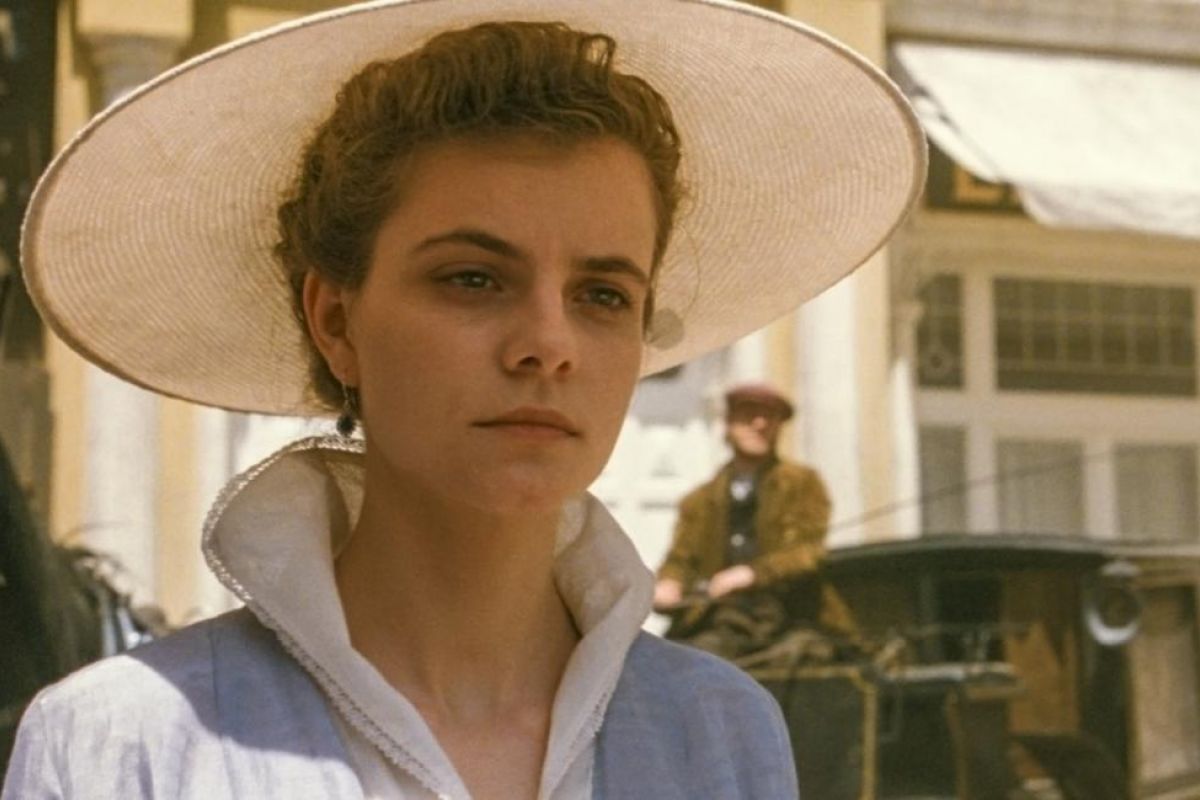
Son of Saul did incredibly well across the world, what was it like moving on to another project off the back of something so successful? Knowing that for the first time in your career, you had a lot of expectation.
Laszlo Nemes: Well it was certainly very difficult. My first film had such a great journey in the world that for me there was a pressure, a positive trauma, if you will. It’s not a gradual building up, it was just explosion, and I had to deal with that and try to follow this phenomenon. Unless I wanted to end my career then, I had to move on and some fellow filmmakers who have much more experience than I do, just said to go and do my second movie, and not to freak too much. I didn’t want to wait, because otherwise all the expectation and my own expectations would have reached a level that is truly hard, almost impossible to cope with. But the focus, the idea and willingness to tell this story is what gave me the strength to do it.
What was the initial attraction to getting involved in this project, Juli?
Juli Jakab: I had known about this project, way before they started the preparation for it because I have known Laszlo since before Son of Saul and I always loved the idea that a story takes place in the beginning of the 20th century with a woman in the middle of the events. After Son of Saul I really wanted to work with him, so it was mainly a personal drive for me to go to the audition and do my best, and give everything I could to get this part.
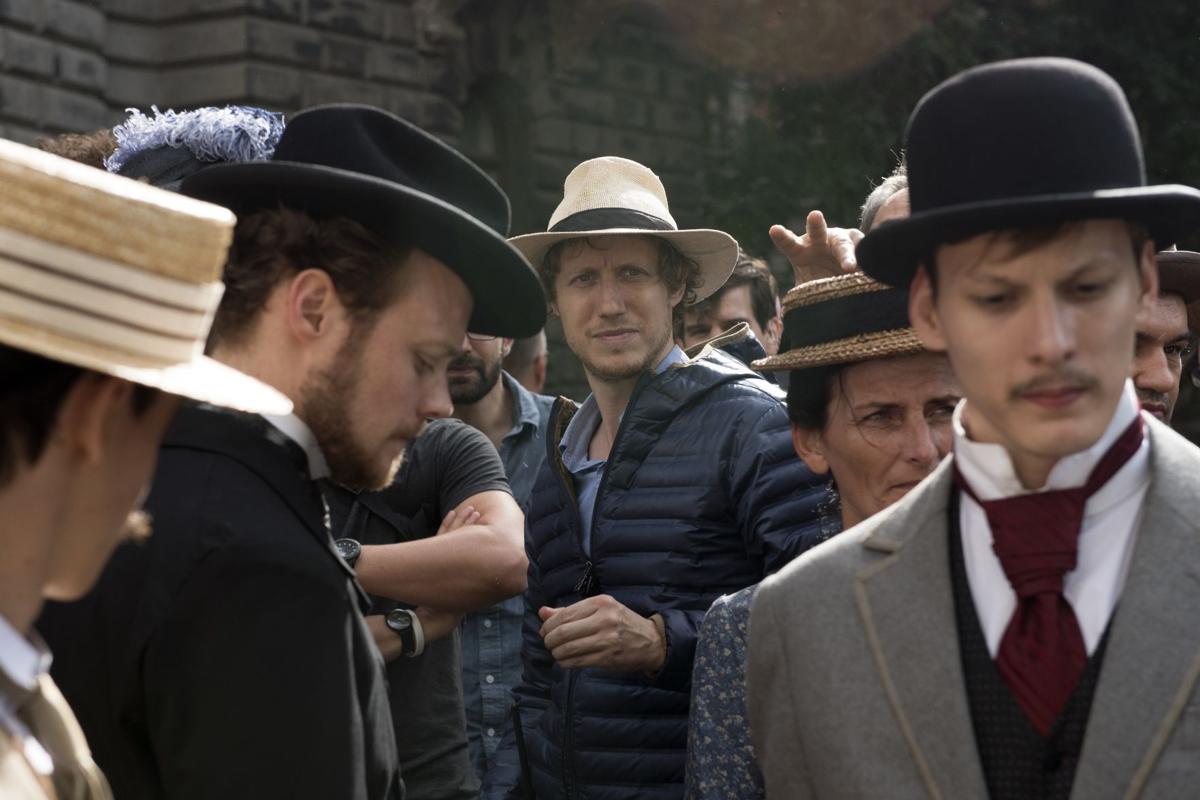
What interested you in telling this story?
Nemes: When I made Son of Saul I wanted to go back, I guess, to the beginning of the 20th century, because I thought there was so much mystery about how this century turned into an era of destruction, whereas when you examine the beginning of the century it could’ve been so different. Before the First World War there was the promise of a civilisational development and the shining period of opulence. It’s interesting because Juli played a little part in Son of Saul, the only female part, and you examine the picture of that young lady in the concentration camp and you see this face torn by this inhuman conditions, and you put it next to the main character of Iris, with a hat and sophistication, and you compare the two, you have the conflict of the 20th century, and the conflict I was interested in. How did it go wrong? Nothing topical on a political or social level, but more on the level of the human soul, what were the forces that coexisted, and coexist still, in humanity, where we have this feeling that we have so much good in us, feel almost like we’re angels, and it’s conveyed by the internet how incredibly good we have to be. But at the same time, what do we push back under the surface that will undo us? And not in a period of slow-decay, but at the very height, at the very zenith of our brightness, what are the forces there that are already preparing our downfall? That is something that is a mystery to me and I’m really interested in that, and why I wanted to go back to this time period.
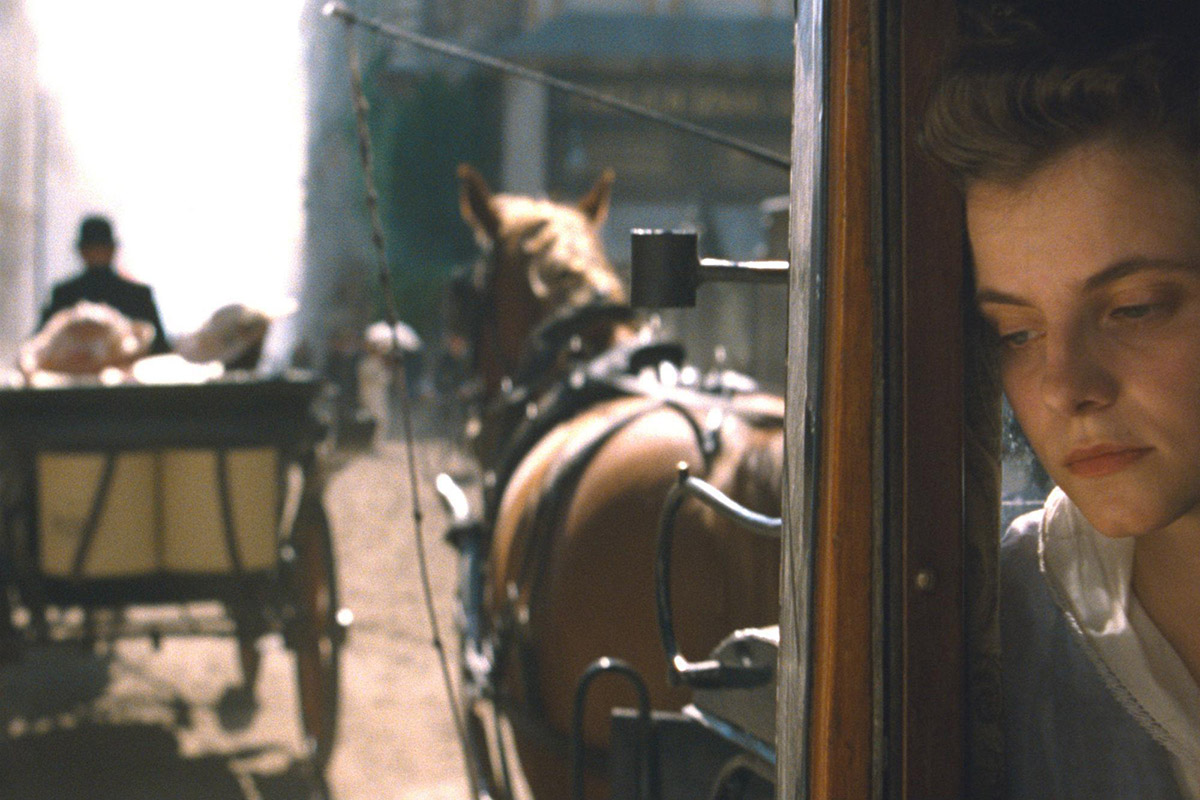
In Son of Saul the camera spent so much time right in front of the protagonist’s face. In Sunset, it spends a lot of time following Juli from behind instead, but still just as a close. What does this intimacy add to a film and its atmosphere for you?
Nemes: There is a continuation in the two films. I really see Sunset as being about our loneliness as individuals in the world that we pretend to know so well. But also our loneliness in the Universe. I designed this film, and the choreography almost like the movement of the planets and the stars, they’re always moving it’s almost like a circular movement from people coming and going, and the main character being the centre of this universe, and I’m really interested in that because in a way it plunges the audience into a world that’s beautiful and has this incredible perpetual movement as the tars would have, but at the same time there are things that are changing, even without seeing it you have a constant reorganisation of the entire universe, it’s never the same. So it’s between perpetual movement and accidents and I think that what guided me as a director in how to approach this movie from a very practical way.
You have a female protagonist in this, and she’s almost ever-present, how has that changed your approach, or the atmosphere on the set, when you have made that change?
Nemes: I was really interested in this film being about how the main character embodies very feminine essence, but also a very masculine one, I see it like a doppelgänger movie, and Juli has a strangeness about her that for me constituted as mystery and for me it was also a journey to try to uncover the layers in her, as the main character tries to do undo the layers in the world and within her. I think she has something innocent, and something of great harshness, and even if she seems very soft when we were filming, she becomes a force that in an invisible manner, draws energy and in a way she embodies this very great strength that everybody feels on the set, including the director. So it’s a mixture of those, a very strange mixture of energies. It’s interesting because we as an audience want her to be innocent, to be the angel. And I saw it when I finished the movie, on one of the last days I finished working on it, and I thought, she knows much more. Even without her knowing during the course of the film, there’s something in her eyes that says, ‘I know more than you do’, and that’s something that is very interesting.
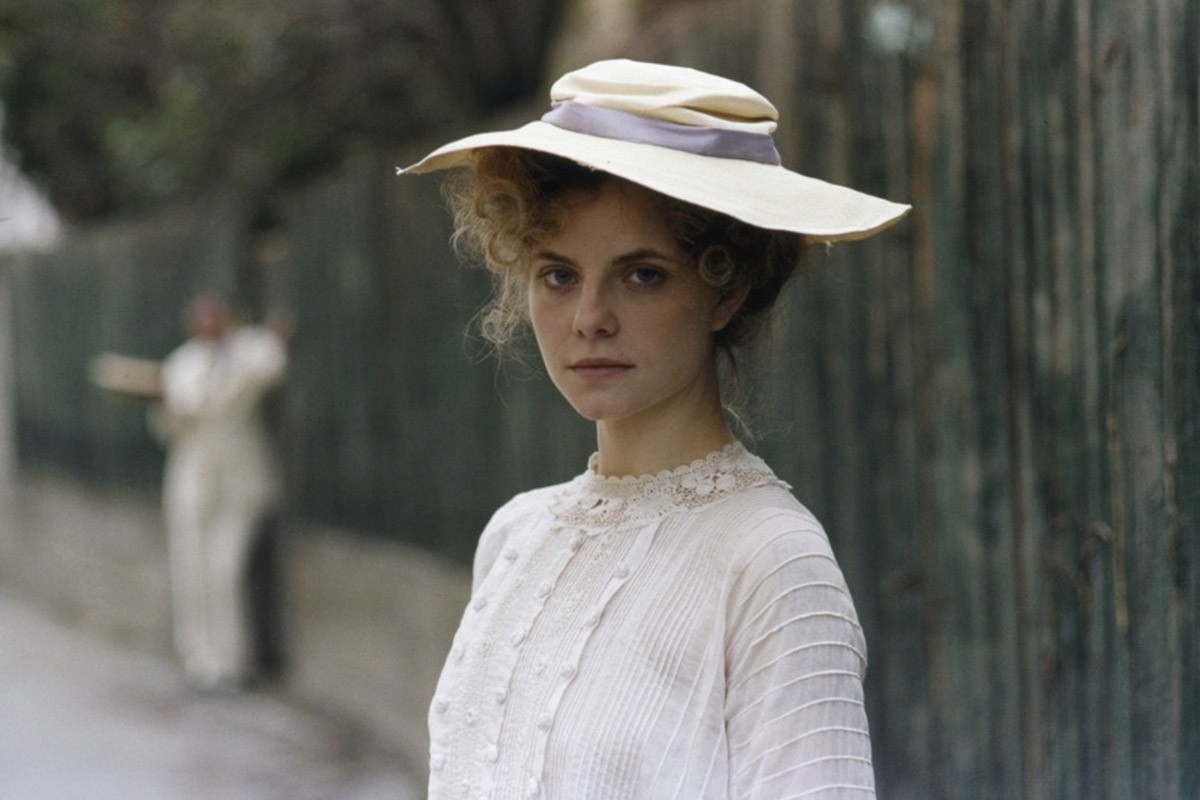
Does she know more than you do – even though you wrote the character?
Nemes: Yeah, more than I do as well. That’s what I was hoping for, that’s what you want as a filmmaker, you want to uncover the mystery, but at the same time you hope the entire mystery won’t be uncovered otherwise it will just be a flat line. So these are the things that don’t work in a usual period piece of filmmaking, but these are energies that I think touch the audience in a very invisible way, and I hope this is the mechanism of the film.
Is that the case for you as well, Juli? Does she have secrets from you as well? Or because you play her are you in control of all her thoughts and mysteries.
Jakab: At the beginning during preparation time, Laszlo told me that sometimes he won’t be able to answer my questions, and that didn’t mean that he didn’t know the story of Iris, I had to understand that it means that somehow I had to lose my thinking, and turn to my emotions, or to have a visceral way of building her up, building Iris’s character. Yes, I think I started to find the main parts of my personality that attaches me to her, but then I found that I can just swim with her through this story and I didn’t have to think about her and why she makes certain decisions, it was instinctive, and surprising.
Nemes: I think it was a journey for you also? To discover your own limits? Maybe that’s just my idea, I don’t want to impose that on you.
Jakab: Yeah, something like that. It’s a very good question but it’s hard to know how to answer because sometimes I felt that yes, I can totally control this part, but on other days I was completely lost, but I felt that I had to be lost.
Nemes: Also, her work as an actor and my work as a director, we try to guide ourselves, but still give the possibility of not knowing everything.
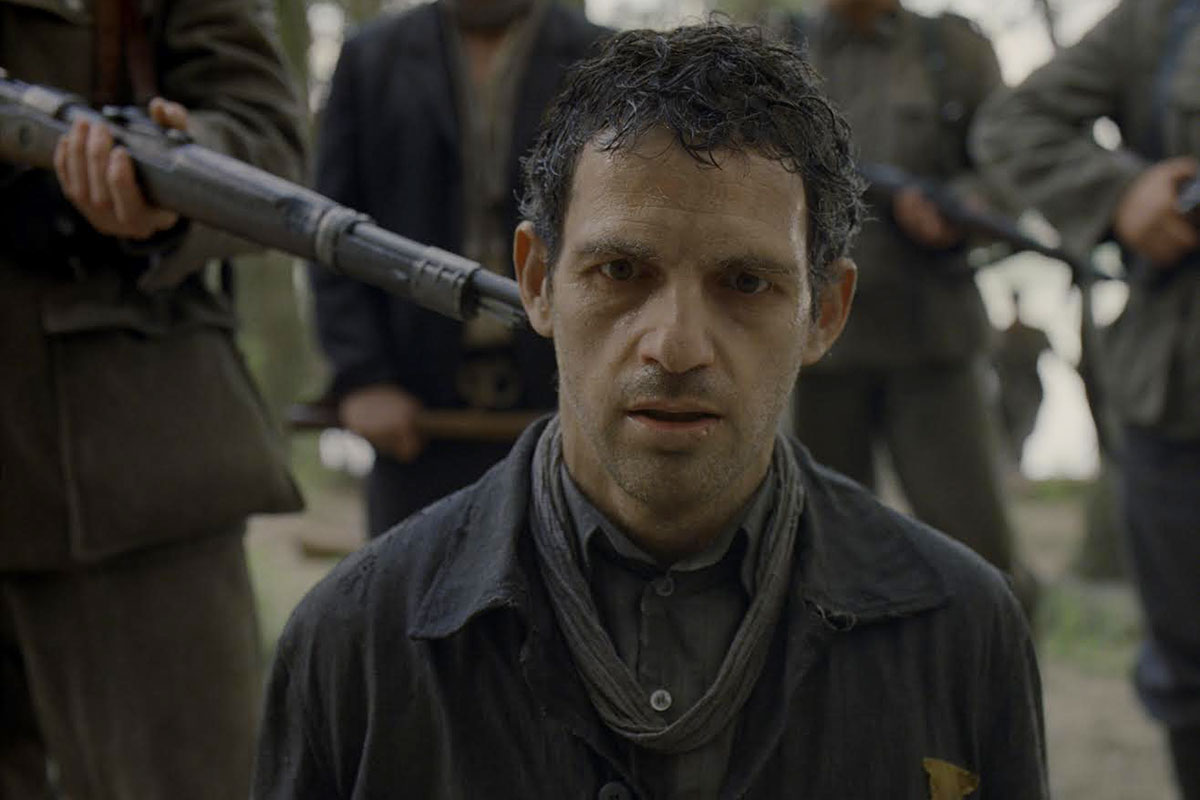
You just looked at the poster behind me which you’re on – when you look at that, do you see the character Iris or do you see yourself?
Jakab: The character.
We’re dipping into a world and a society so many audience members will know so little about – is that the case for you, and is that part of the joy in your craft; exploring places and times you know so little about?
Nemes: Certainly, and there’s no other way of knowing anything about it.
Jakab: Yes, I think it’s always important to keep in mind previous events in history, but for me the most important part was to approach this character and this era with my modern eyes and to find her, to find Iris as a person, and during the shooting Irish meets different people from very different circumstances and environments and I always felt that I didn’t have to think about that it’s 1913, I just have to find a way she behaves, and it can be one continuous line from 200 hundreds ago until today, and it was very interesting for me to experience time travelling but also this continuity of human behaviour.
Does it also tap into a childlike quality, because acting is, at its core, the notion of make-believe.
Jakab: Especially in this case, when we had the chance to wear these clothes, and hats and everything. For all of us, me and the other girls, it was a very rare situation to get the chance to merge into this beautiful world. I also found my girlie side, and it helped a lot to meet with these beautiful fabrics and very detailed objects. It was like a beautiful play to meet this era. The way people behaved back then is something entirely different to the way we behave today, and it was so good to find out tiny details about it. For example, the way they had to walk on the street, or the way they had to behave when they sat down to eat their dinner, it was a nice game.
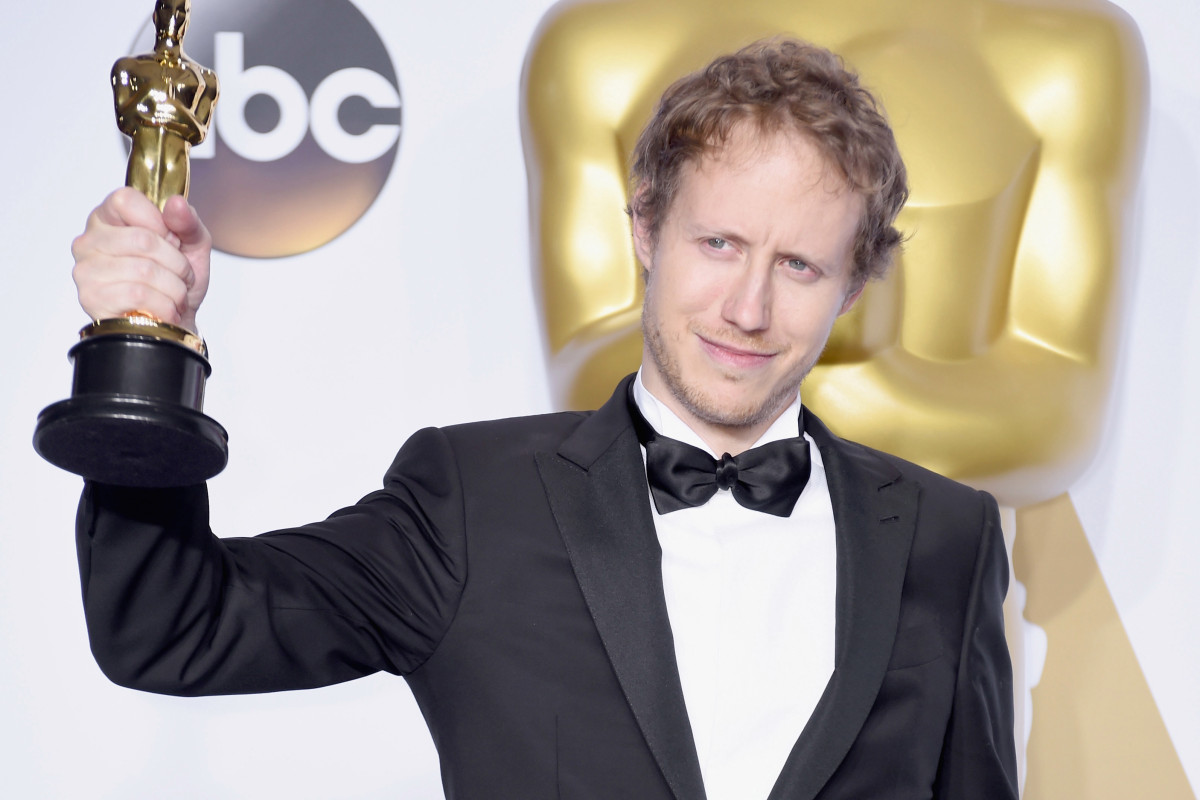
Why do you look back?
Nemes: I go back because I’m drawn to this period of the crossroads. How did it go wrong? The promise of a civilisation that chose suicide in two world wars, how did this happen in the minds of people? Again, not on a political level, but in the factors, the vortex that is underneath. This is something cinema can explore, and this is the only way to go back in a believable manner for today’s audience, and capture a little bit of the turmoil and the uneasiness that is underneath the surface, that is something I wanted to explore.
Finally, sometimes actors keep mementos from their movies. Were you tempted to keep one of the hats, Juli?
Nemes: She didn’t ask for one. You have to part with it. You cannot keep Iris in you forever.
Jakab: No, and it was very important for me to keep a distance from her. It was her hat.
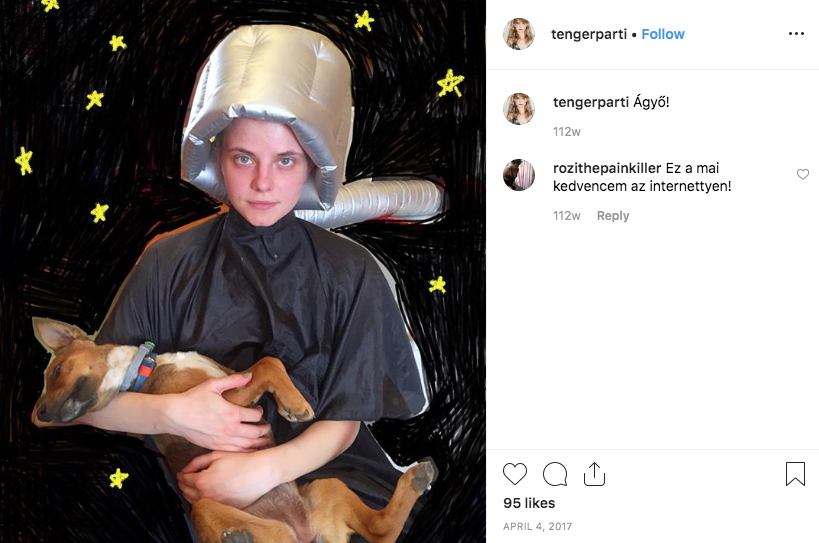


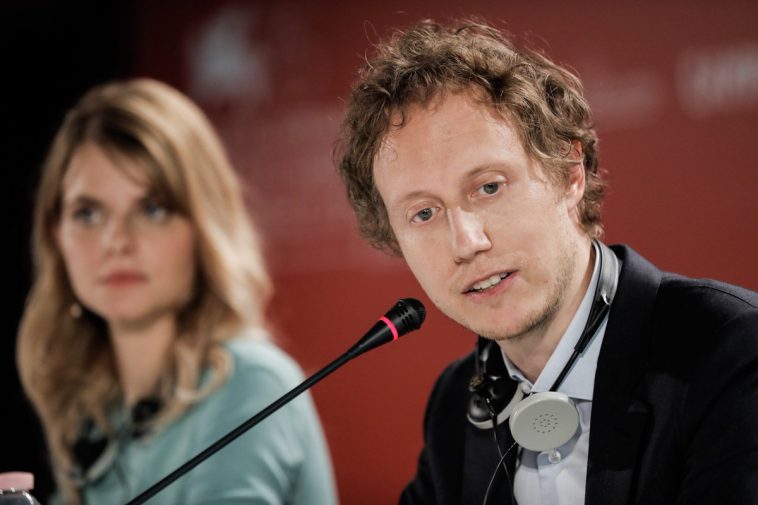






Leave a Comment